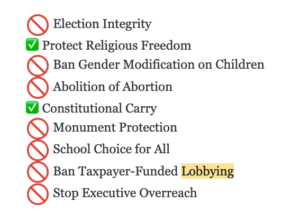Evidently the exploding clown show that was this year’s Texas regular legislative session, and the House’s failure to pass many conservative priorities (including election reform) has governor Greg Abbott planning on calling an extra special session this summer in addition to the redistricting session that will happen sometime this fall:
Thursday morning, while being interviewed on the radio by Chad Hasty, Gov. Greg Abbott all but confirmed there will be at least two special called legislative sessions.
While he stopped short of giving a specific time for the first special session, he indicated that it would address election integrity, bail reform, and potentially other issues. The other special called session, which will be held around September or October, will be specific to redistricting and the use of federal COVID-19 funding.
Abbott said, “I’m not going to engage in Monday morning quarterbacking, but I’ll treat this as halftime. We didn’t get this done in the first half, but we’ll get there in the second half.”
On May 30, a majority of Texas House Democrats walked out while they were considering the omnibus election integrity bill, or Senate Bill 7. This brought the total of legislators present under 100, therefore “busting quorum” and rendering the bill dead. It also meant that several other bills or conference committee reports that were waiting to be called up died as a result. One of those included the conference committee reports related to bail reform, like House Bill 20 or House Joint Resolution 4, which were also emergency legislative priorities of Abbott.
The following day, Abbott tweeted his intent to potentially defund the Legislature as a result.
Election integrity is a must, and I’d also like to the taxpayer-funded lobbying ban and banning gender modification of children. But we don’t know what topics Abbott will limit the special session to. There are ways for legislators to offer bills on other topics during a special session, but there are many ways for the Governor and chamber leadership to kill bills that are “outside the call.”

